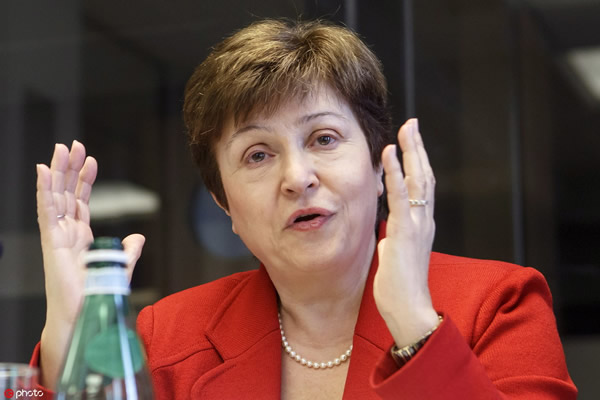
Ghana should make sure the debt relief deal it negotiates with commercial creditors do not undermine the country’s efforts to recover from its economic crisis, International Monetary Fund chief Kristalina Georgieva told President Nana Akufo-Addo.
The comments were made on Sunday in a private meeting during Georgieva’s visit to the West African country, whose economy is recovering from its worst crisis in a generation after it defaulted on most of its external debt in December 2022.
They were relayed to Reuters by two people who were in the meeting. While the IMF plays a key role in advising countries on how to get their debt back onto a sustainable footing, it usually does not comment publicly on the debt restructuring process.
In January, Ghana reached a deal in principle to restructure $5.4 billion of loans with official creditors, including China and France.
Its efforts to overhaul $13 billion in international bonds have also potentially hit the home stretch: International bondholders entered into non-disclosure agreements (NDAs) with the government last week, sources told Reuters, a step marking the start of formal talks to restructure.
“You cannot allow the Eurobond creditors to twist your arm,” Georgieva told Akufo-Addo, according to one of the people.
“Why? Because you have done a very painful domestic debt restructuring that hurt people here [and] you have agreed, in principle, [a] debt restructuring with the official creditors of Ghana under certain conditions,” she added.
Georgieva said Ghana had to strike a fair deal or else risk facing a scenario akin to Zambia.
The first African country to default in the COVID-19 era, in late 2020, Zambia has seen its restructuring process beset by setbacks. Late last year, a deal Zambia struck with its bondholders was scuppered by official creditors’ objections on the grounds that it did not offer comparable debt relief to theirs – a major blow.
Zambia’s bondholders, Georgieva added, had secured a better deal than official creditors, including China, which had subsequently blocked the deal in November, costing Zambia time.
Asked about the comments, an IMF spokesperson said by email that in the context of a debt restructuring, the Fund helped define broad parameters that underpin restoring debt sustainability, but “does not take sides”.
“The specifics of how to achieve this is left to sovereign governments and their creditors. In this case, the managing director was referring to the need to ensure the program parameters are met,” the spokesperson added.
Spokespeople for Ghana’s president did not respond to requests for comment.
Source: reuters.com











